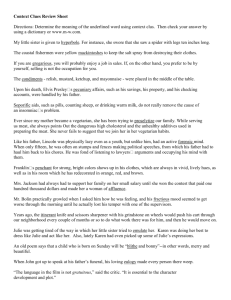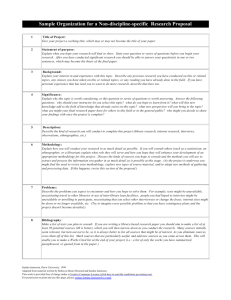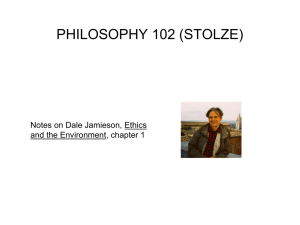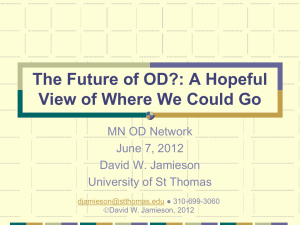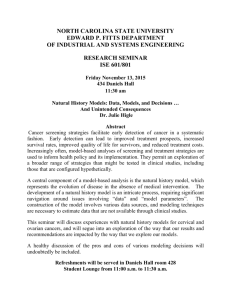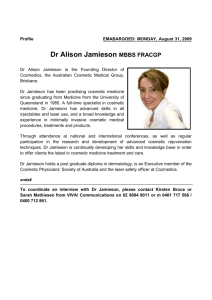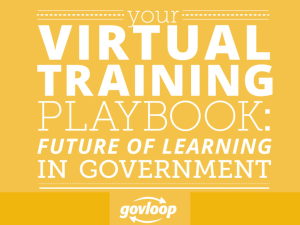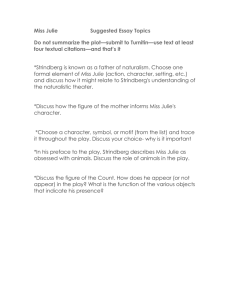How Do We Make That Happen David W. Jamieson, Ph.D. and Julie O
advertisement
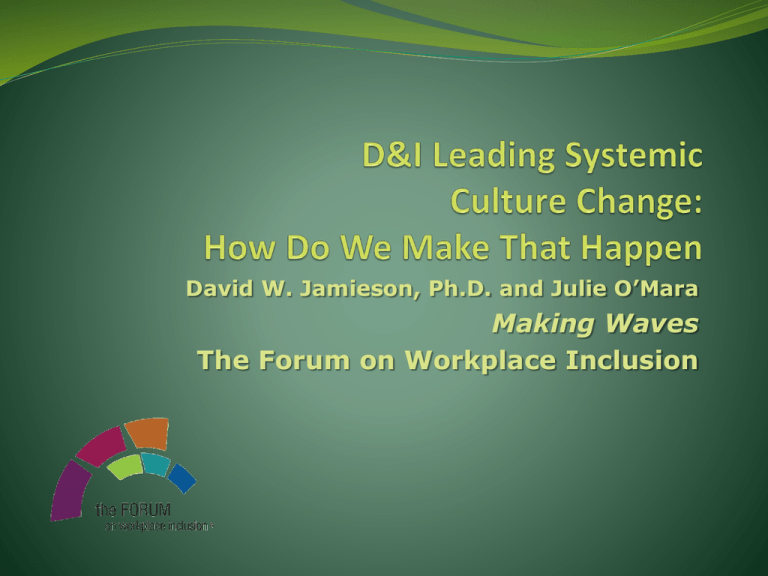
David W. Jamieson, Ph.D. and Julie O’Mara Making Waves The Forum on Workplace Inclusion Plan for the Session Our Title Core Concepts in Culture Change Perspectives on D&I Outcomes A Comprehensive View The Premise for this Session Our World Café ©David W. Jamieson and Julie O'Mara, 2015 Systemic Culture Change Systemic: the organization as a socio-technical system with many interdependent, moving parts. To design or change it requires involvement, integration and alignment. Culture: shared values, beliefs, expectations and norms that drive normal (to the organization) behaviors, processes, practices and decisions. Organization Change: the process of shifting, transitioning or transforming the what and/or how of an organization. ©David W. Jamieson and Julie O'Mara, 2015 Some Core Concepts in Culture Change Culture is the core component of an organization’s design and influences much of the behavior and dynamics. It forms over time and becomes deeply embedded in individuals, norms, policies, practices, rituals and other artifacts of organizational life. It operates to drive conformity & maintain itself; and is influential across the whole system. It therefore requires systemic change to overcome the natural cultural resistance to change. Change in culture ultimately requires strong leadership, courage, reinforcements, rewards and numerous manifestations supporting the new values or the old culture will continue to win the daily behavior battles! ©David W. Jamieson and Julie O'Mara, 2015 A Perspective on D&I Outcomes D&I practitioners have been working toward the same goals for many years. With some exceptions, reaching the desired outcomes has been illusive. The common goals/principles and outcomes seem to be: Achievement of the organization mission & vision, efficient/effective operations, high stakeholder satisfaction All voices heard and considered Authentic self versus just assimilation to a culture Increased inclusion, satisfaction, engagement, and teamwork Increased community involvement, social cohesion, sustainability Diverse representation at all levels Clear understanding of the comprehensive end-state achievable in D& I work ©David W. Jamieson and Julie O'Mara, 2015 ©David W. Jamieson and Julie O'Mara, 2015 Premise for this Session D&I needs to be included in the core strategic decisions and changes of the organization. How can this be more possible? D&I needs a systemic change process -- dealing with the whole system -- in reaching D&I outcomes. What needs to be different? Expertise in strategic integration and change are important in D&I professionals and any initiatives. How can we meet those competences? D&I needs clear visions of desired end states and its role in the organization’s success. How can this process be helped? ©David W. Jamieson and Julie O'Mara, 2015 Our World Café Session process based on The World Café: Shaping Our Futures Through Conversations That Matter by Juanita Brown with David Isaacs and the World Café Community. Forward by Margaret J. Wheatley. Afterword by Peter Senge. Published by Berrett-Koehler Publishers. ©David W. Jamieson and Julie O'Mara, 2015 World Café Instructions Three discussion rounds. You choose table. Each a different topic, but same process. “Nice” if there are about 6 to 8 at each table, but go to your interest. Each round builds on previous discussion. Table host has responsibility to set stage & inform essence of previous discussion, capture key ideas and report briefly at end of last round. All participants use markers to write on “table cloths” and take great notes. End result to be shared after the session. ©David W. Jamieson and Julie O'Mara, 2015 Café Discussion Topics Each is a challenge or opportunity to influencing culture change to reach D&I outcomes. 1. 2. 3. 4. 5. 6. 7. 8. 9. 10. 11. Competence of D&I professionals Navigating politics Authentic leadership commitment Organizational Silos Understanding the breadth of D&I work and the end goals Understanding systems, change, and the centrality of culture Understanding power dynamics Unconscious bias Personal traits: confidence / boldness / willingness to risk Create Your Own Topic Create Your Own Topic ©David W. Jamieson and Julie O'Mara, 2015 Rounds One & Two 15 minutes each round Host facilitates introductions Host leads brief framing discussion of the topic: How do you interpret this topic? What ideas/solutions would you suggest? Discuss process / solutions / ideas Everyone jots notes and ideas on the “table cloth” Host leads 3-minute summary discussion to highlight key points Dave and Julie will announce when to move to next table for Rounds Two and Three ©David W. Jamieson and Julie O'Mara, 2015 Round Three 10 minutes Host leads summarizing discussion of this topic pulling out important ideas leading to change Host & group determine one synthesized highlight from table discussions to share with the larger group ©David W. Jamieson and Julie O'Mara, 2015 ©David W. Jamieson and Julie O'Mara, 2015 ©David W. Jamieson and Julie O'Mara, 2015 Thank you David W. Jamieson, Ph.D. Professor & Department Chair, Organization Learning & Development College of Education, Leadership & Counseling, University of St. Thomas djamieson@stthomas.edu + 310-699-3060 (cell) ©David W. Jamieson and Julie O'Mara, 2015 Julie O’Mara D&I Author and Consultant, O’Mara and Associates, Member, Board of Directors, Berrett-Koehler Publishers (home office) 2124 Water Rail Avenue North Las Vegas, NV 89084 julie@omaraassoc.com + 702-541-8920
